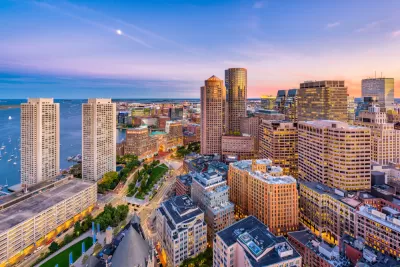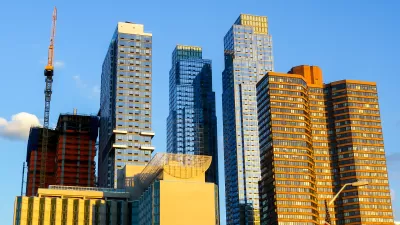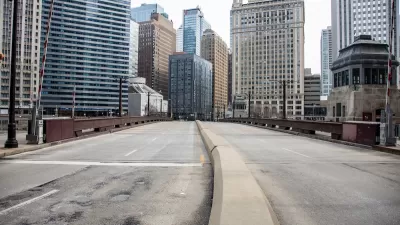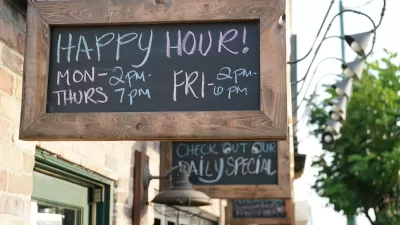In the age of remote work, relying on major employers to boost a city’s economic fortunes may no longer be enough.

Writing in Route Fifty, Molly Bolan comments that “the rise of remote work has permanently changed urban economies, and cities are going to have to double down on their strengths to attract more residents.” Referencing a study of six powerhouse U.S. cities that, in the past, wooed big corporations to develop their economies, Bolan writes that they will now have to shift their focus to luring residents with other amenities. “Without the call of the office bringing people downtown, cities and states will need to get creative in finding new ways to keep metro economies afloat.”
“Between 2020 and 2022, the six cities were among those that saw the greatest declines in population in the country, with New York losing more than 400,000 residents in those two years, according to the Census Bureau. Meanwhile, nine of the 15 fastest-growing cities in the U.S. are in Southern states and four are in the West, thanks to lower housing costs, shorter commutes, and remote work.”
According to Doug Howgate, president of the Massachusetts Taxpayers Foundation, “At a fundamental level, your economy and your society only succeed if you have the resource of people.” In the case of Boston, which previously relied on downtown workers, the city has launched a $1 billion life sciences initiative that seeks to support the city’s biopharmaceutical industry and create new opportunities for people to live and work there.
Howgate notes that there is no ‘silver bullet’ for maintaining growth, and that disruptions like the pandemic will likely continue. Cities must identify their unique advantages: “Building a strong urban economy requires understanding the complex relationships around housing, life sciences, federal funding and taxes,” says Howgate.
FULL STORY: If jobs won’t bring people downtown to work, what will?

Maui's Vacation Rental Debate Turns Ugly
Verbal attacks, misinformation campaigns and fistfights plague a high-stakes debate to convert thousands of vacation rentals into long-term housing.

Planetizen Federal Action Tracker
A weekly monitor of how Trump’s orders and actions are impacting planners and planning in America.

Chicago’s Ghost Rails
Just beneath the surface of the modern city lie the remnants of its expansive early 20th-century streetcar system.

Bend, Oregon Zoning Reforms Prioritize Small-Scale Housing
The city altered its zoning code to allow multi-family housing and eliminated parking mandates citywide.

Amtrak Cutting Jobs, Funding to High-Speed Rail
The agency plans to cut 10 percent of its workforce and has confirmed it will not fund new high-speed rail projects.

LA Denies Basic Services to Unhoused Residents
The city has repeatedly failed to respond to requests for trash pickup at encampment sites, and eliminated a program that provided mobile showers and toilets.
Urban Design for Planners 1: Software Tools
This six-course series explores essential urban design concepts using open source software and equips planners with the tools they need to participate fully in the urban design process.
Planning for Universal Design
Learn the tools for implementing Universal Design in planning regulations.
planning NEXT
Appalachian Highlands Housing Partners
Mpact (founded as Rail~Volution)
City of Camden Redevelopment Agency
City of Astoria
City of Portland
City of Laramie





























